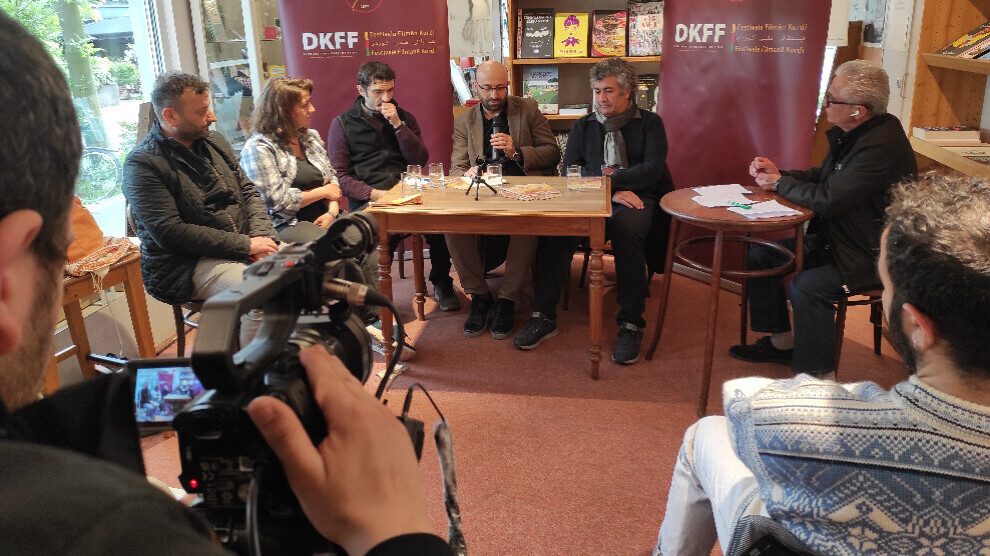Panel about 'Kurdish Cinema' at 1st Düsseldorf Kurdish Film Festival
A panel about 'Kurdish Cinema' was held at the 1st Düsseldorf Kurdish Film Festival.
A panel about 'Kurdish Cinema' was held at the 1st Düsseldorf Kurdish Film Festival.

The 1st Düsseldorf Kurdish Film Festival continued on its second day. A panel about'Kurdish Cinema' was held at the festival. Directors Sevinaz Evdike, Özkan Küçük, Mano Khalil, Ersin Çelik and Özgür Rayzan made presentations at the panel moderated by journalist Ejder Xelîl.
Ersin Çelik gave the following answer to the question about Rojava cinema in the panel broadcast live on Stêrk and Çira TV: "We have given martyrs like Piro and Mazdek. A great effort was made. An experience was created. Maybe an experience that will feed the next ten years has emerged. From now on, schooling is important. Cinema cannot be achieved without experience. Films must increase. Even though the conditions of the war affect it, the Kurdish literature on schooling and cinema is important. From now on, planning should be done targeting the next ten years."
Ersin Çelik also said: "Kurdistan is under occupation. Our language is disappearing. That's why we have to shoot films in Kurdish. That's why cinema is not just cinema for us. It is a stance against assimilation."
Mano Khalil said that he studied cinema in Czechoslovakia. He has been involved in cinema for more than 30 years, shot 15 films in Europe and received 68 awards.
Khalil presented his last film, Cîran (Neighbours) at the festival. He said: "I wanted to shoot the movie Cîran in my country. I really wanted to shoot it in Rojava. We had prepared everything. But Turkish soldiers attacked Rojava and started a war. That's why we had to shoot the movie in Europe."
Asked why the title, Neighbours, Khalil said: "My mother is from Bakur, my father is from Rojava. They would take me to the border and give me information about serxet and binxet. Our language was forbidden. The Baath regime wanted to make us slaves. The movie Cîran tells about the enslaved people in Syria."
'Kurdish cinema is developing'
Özgür Rayzan, one of the organizers of the festival, said about the choice of Düsseldorf for the new festival: "Festivals create great opportunities for people who want to make films. Therefore, having festivals is important in itself. As for why we chose Düsseldorf... Düsseldorf is the capital of the state of NRW. The state where the most Kurds live is NRW. Also, many Kurdish artists live in this state. We wanted the entire art community to come together."
Sevinaz Evdike, who attended the festival from Rojava, said: "We tried to learn how to make films together with at least 50 young people in Rojava from 2015 to 2023. Today, some 15 of those 50 people are still there. Due to the attacks of the Turkish state against Rojava, they had to leave. But despite everything, new movies are being shot. For example, two TV series and two feature films were shot in 2023. Now, new movies are being prepared. Despite all the attacks, Kurdish cinema is developing in Rojava, and we hope to shoot more movies."